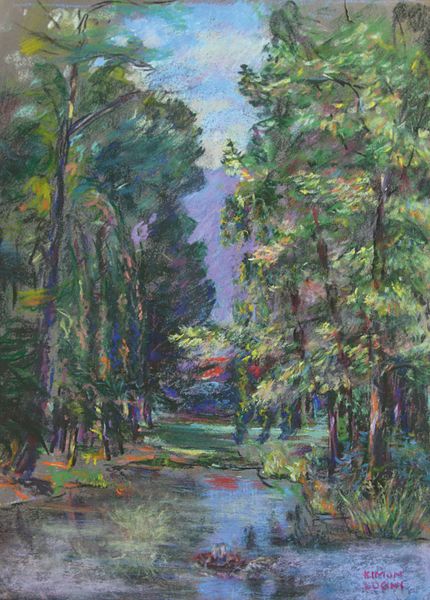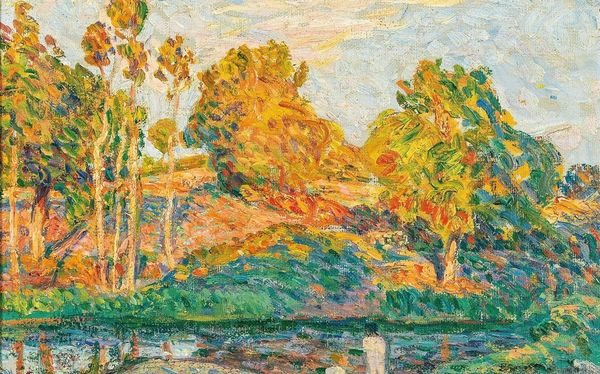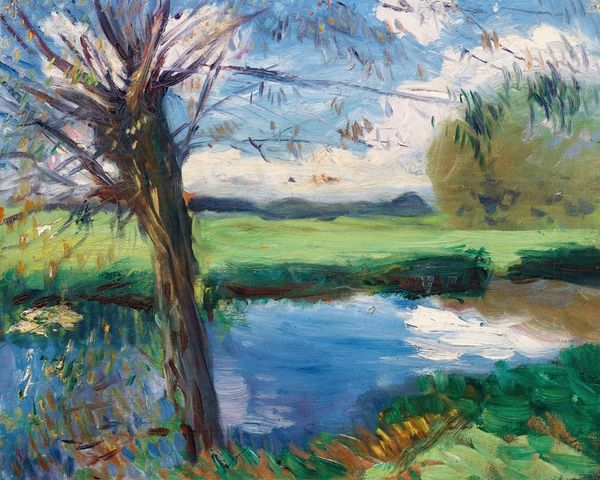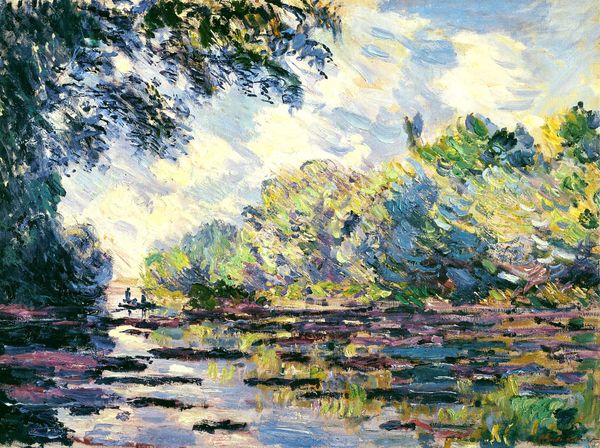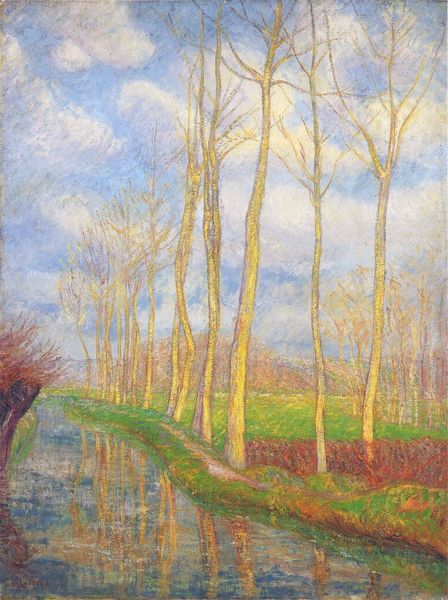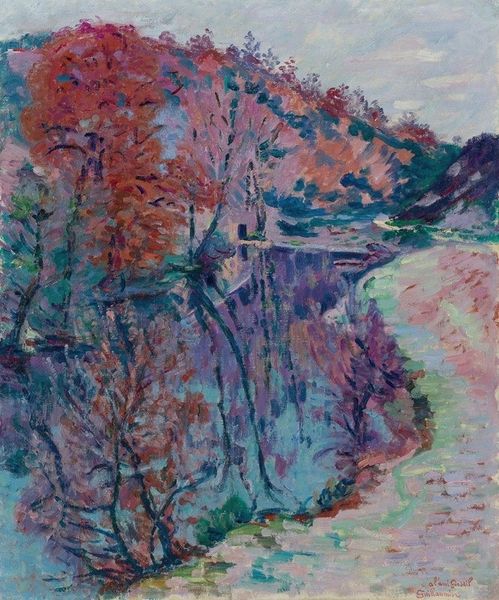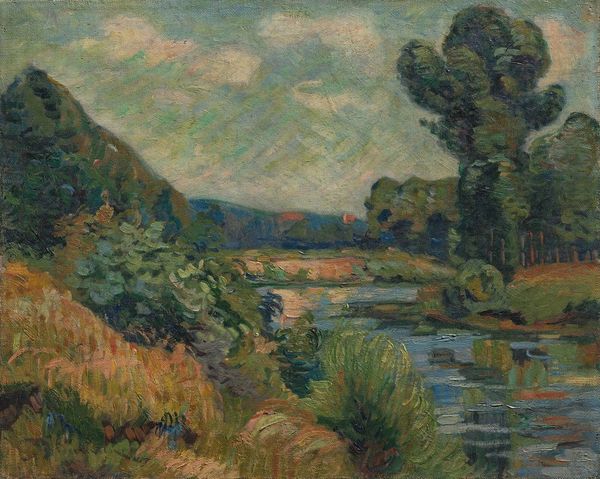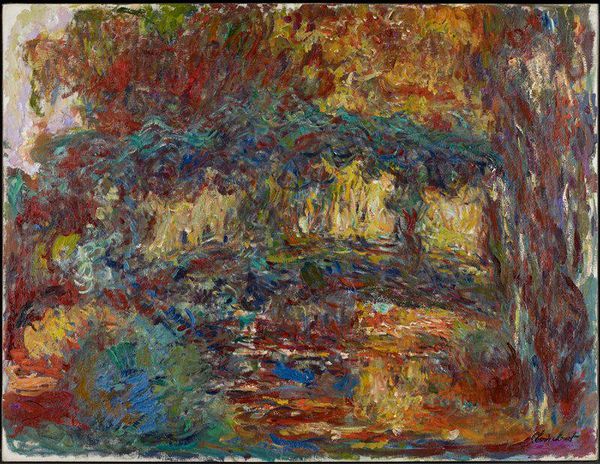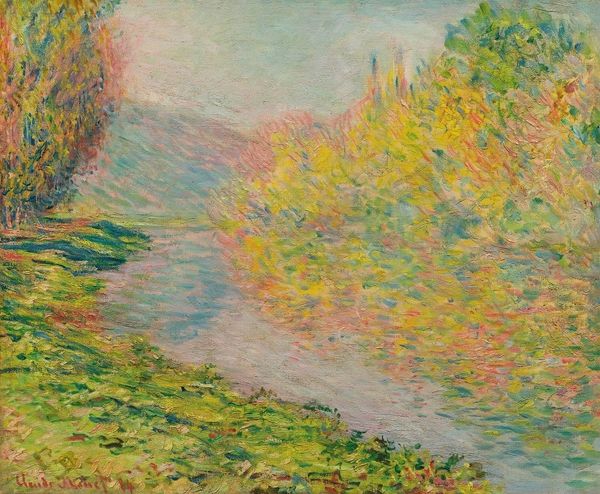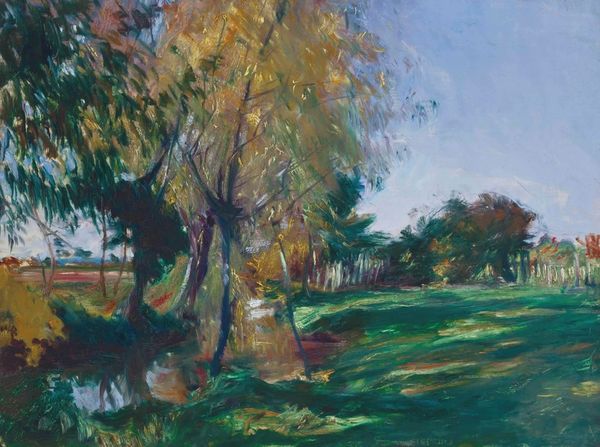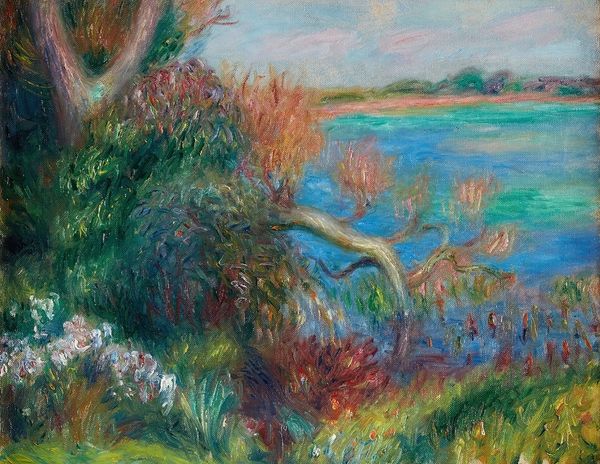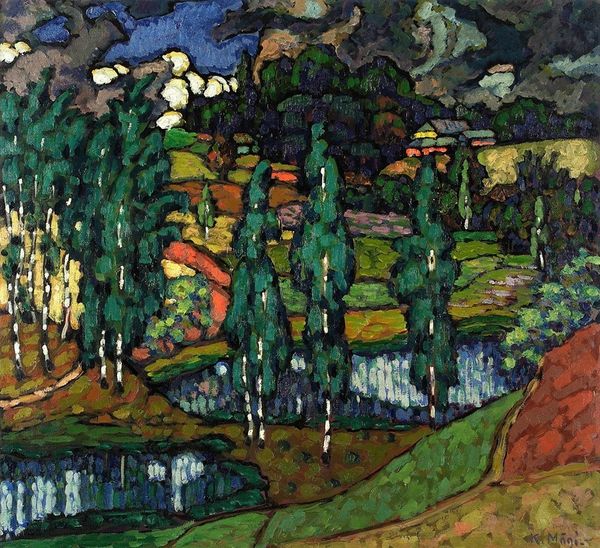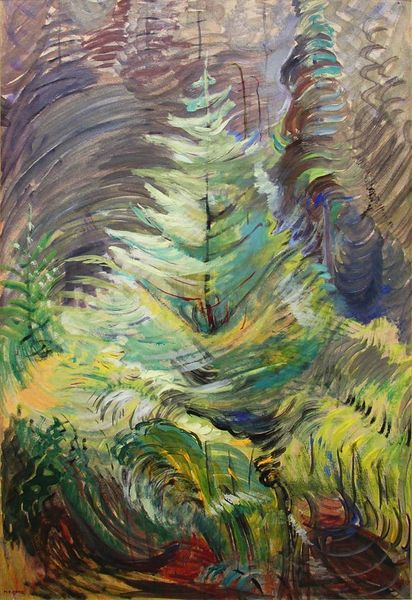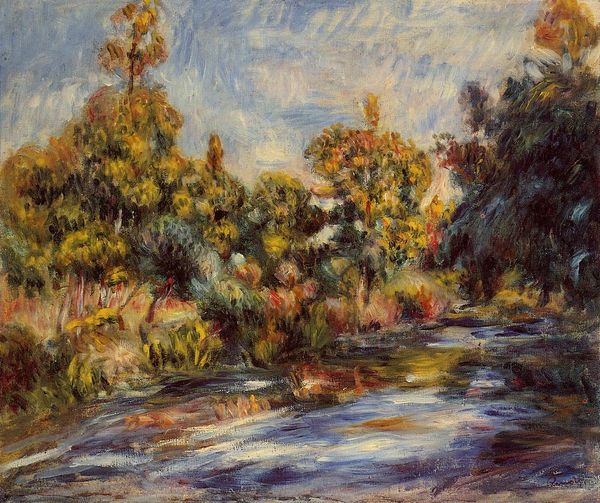
Copyright: Public Domain: Artvee
Editor: Here we have Armand Guillaumin’s "Paysage à Breuillet," created in 1890. It's an oil painting, and the thick brushstrokes create a really vibrant, almost shimmering effect, especially in the water. What jumps out at you when you look at this piece? Curator: The Breuillet landscape, rendered in this Neo-Impressionist style, reflects the late 19th century’s evolving relationship with the French countryside. We see not just a representation of nature, but an active construction of it. The impasto technique, those thick daubs of paint, allowed Guillaumin to present his subjective interpretation, not just a mirror of reality. Consider the socio-economic forces at play. Urbanization was rapidly increasing, causing a yearning for the pastoral, a romanticized view of rural life. Does this inform our perception of the piece, perhaps a yearning of an industrial society? Editor: Absolutely! It's easy to see that yearning, that idealization. But, if this was about social commentary, was Guillaumin part of this yearning for a life perhaps lost or being lost? Curator: Guillaumin, as a member of the Parisian avant-garde, certainly participated in shaping these visual representations of the rural. His works, shown in galleries of Paris, brought carefully constructed imagery of the countryside to a wealthy urban audience. But it wasn’t necessarily social commentary in the modern sense. Think more about the institutional validation – the art market, the salons – which allowed and promoted this style. How do you think these societal forces impacted what ended up on the canvas? Editor: That makes sense. I didn't consider how much the art market would shape the kind of landscapes artists would paint, beyond their own personal taste. Curator: Exactly. The interplay of the artist's vision and institutional demand shapes what art is produced and valued. Perhaps a more nuanced understanding for both of us! Editor: Definitely! I'll keep that in mind for future interpretations. Thanks!
Comments
No comments
Be the first to comment and join the conversation on the ultimate creative platform.
